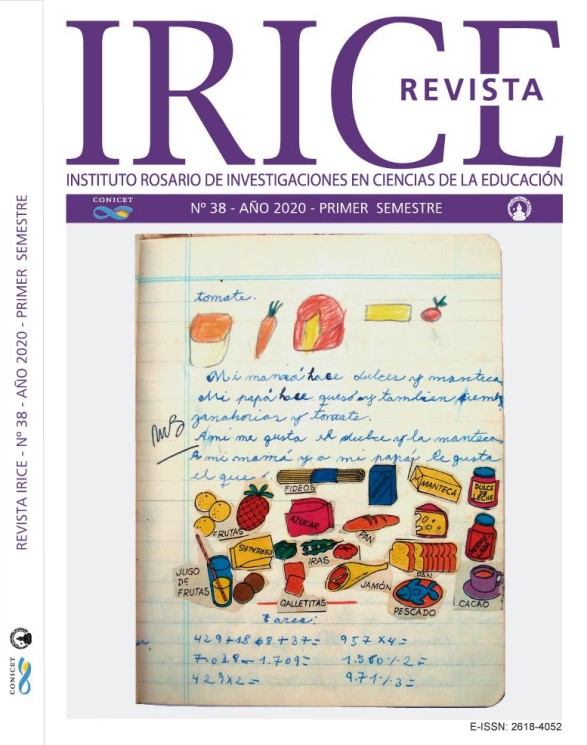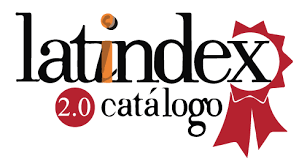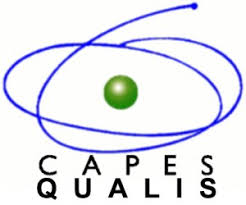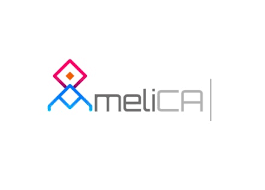The effect of the type of data on the confirmation bias produced by incoming and advanced university students
DOI:
https://doi.org/10.35305/revistairice.vi38.1308Keywords:
confirmation bias, university students, graphs, argumentationAbstract
Argumentation is a rational way to carry out discussions, which requires the production of a discourse that defines and justifies a certain point of view. It is considered essential in the educational field due to its epistemic potential. Confirmation bias, considered as a factor that interferes with a successful argumentation, consists in the interpretation the evidence that favors the own beliefs and ignoring the one that does not. The objective of this research is to study the confirmation bias that Psychology University students show in their argumentative writings, in relation to the type of data and the year of study. A quasi-experimental study was designed, with one dependent variable: confirmation bias; and two independent variables: type of data (textual or graphical) and time of study (incoming or advance student). 72 students participated. They worked on a socio-scientific task: 21 advanced students did so with textual information and 20 with graphs; while 18 incoming students did so with textual information and 13 with graphs. The results show the incoming students with the highest production of confirmatory bias, mainly when they work with graphs; while advanced students showed less production of bias, especially when working with textual information. The need to include this problem in the curriculum, taking advantage of the plurality of perspectives that the discipline has, was concluded.
Downloads
References
Aguirre, S. C. (2008). Cicerón: Retórica y filosofía moral. Verdad y argumentación jurídica en el Orator Perfectus. A Parte Rei, 59, 1-12.
Arrosi, F., Axelrud, B., D’Agostino, M., & Eisner, L. (2003). Competencias argumentativas en alumnos universitarios. En M. M. García Negroni (Ed.), Actas del Congreso Internacional La argumentación (pp. 656-664). Buenos Aires: Universidad de Buenos Aires.
Buriticá, W. B., Fernández, D. I. C., & Upegui, M. E. M. (2015). Argumentación y uso de aplicaciones web2.0 en la Educación Básica. Revista lasallista de investigación, 12(1), 58-64.
Calvo, R. W. (2015). Teoría de la argumentación, retórica y hermenéutica: Un “álbum familiar” a revisar. Advocatus, 25, 209-221.
Carvajal, I. X., & Martínez, L. F. (2014). Enculturación científica a partir de la argumentación: una cuestión sociocientífica (CSC) sobre implantes estéticos. Góndola, enseñanza y aprendizaje de las ciencias, 9(1), 96-102.
Castellaro, M., & Peralta, N. (2020). Pensar el conocimiento escolar desde el socioconstructivismo: interacción, construcción y contexto. Perfiles Educativos, 42(168), 140-156. https://doi.org/10.22201/iisue.24486167e.2020.168.59439
Cubillos, D. M., & Duarte Castro, G. G. (2015). Desarrollo de la competencias argumentativas a través de cuestiones socio científicas (csc) en un entorno de trabajo cooperativo (Tesis de Maestría). Universidad Pedagógica Nacional, Colombia.
Curcio, J. M., Peralta, N. S., & Castellaro, M. (2019). Tamaño del grupo, argumentación y lectura de tablas en estudiantes universitarios. Diversitas, 15(2), 211-220.
Felton, M., Crowell, A., & Liu, T. (2015). Arguing to agree: Mitigating my-side bias through consensus-seeking dialogue. Written Communication, 32(3), 317-331.
Felton, M., García-Milá, M., & Gilabert, S. (2009). Deliberation versus dispute: The impact of argumentative discourse goals on learning and reasoning in the science classroom. Informal Logic, 29(4), 417-446.
Felton, M., & Kuhn, D. (2001). The development of argumentative discourse skills. Discourse Processes, 29(2-3), 135-153.
García‐Milá, M., Gilabert, S., Erduran, S., & Felton, M. (2013). The effect of argumentative task goal on the quality of argumentative discourse. Science Education, 97(4), 497-523.
García-Milá, M., Pérez-Echeverría, M. P., Postigo, Y., Martí, E., Villarroel, C., & Gabucio, F. (2015). ¿Centrales nucleares? ¿Si o no? ¡Gracias! El uso argumentativo de tablas y gráficas. Infancia y Aprendizaje, 39, 187-218.
González-Lamas, J., Cuevas, I., & Mateos, M. (2016). Argumentar a partir de fuentes: Diseño y evaluación de un programa para mejorar la argumentación escrita y su impacto en función de las creencias acerca de la escritura académica que mantienen los estudiantes. Infancia y Aprendizaje, 39(1), 49-83.
Hammer, L., & Noemi Padilla, C. (2016). Relación entre pensamiento crítico y complejidad discursiva en estudiantes universitarios. En C. Santibáñez (Comp.), Ecología argumentativa universitaria: de la realidad a los conceptos (pp.187-208). Chile: Cosmigonon.
Karousos, N., Papadakis, S., Xenos, M., Karacapilidis, N., & Tzagarakis, M. (2011). Development of argumentation skills via learning management systems. En Proceedings of the International Conference on Knowledge Engineering and Ontology Development (pp. 474-477). Setúbal: SCITEPRESS. doi: 10.5220/0003691304740477
Kuhn, D., & Udell, W. (2007). Coordinating own and other perspectives in argument. Thinking & Reasoning, 13(2), 90-104.
Leitão, S. (2000). The potential of argument in knowledge building. Human Development, 43(6), 332–360.
Mercier, H., & Sperber, D. (2011). Why do humans reason? Arguments for an argumentative theory. Behavioral and Brain Sciences, 34(2), 57–74.
Nickerson, R. S. (1998). Confirmation bias: A ubiquitous phenomenon in many guises. Review of general psychology, 2(2), 175-220.
Peralta, N., & Roselli, N. (2017). Modalidad argumentativa en función del tipo de tarea y tamaño del grupo. Cogency, 9(2), 67-83.
Perelman, C., & Olbrechts-Tyteca, L. (1989). Tratado de la argumentación. Madrid: Editorial Gredos.
Perkins, D. N., Allen, S. H., & Hafner, J. (1983). Difficulties in everyday reasoning. En W. Maxwell (Ed.), Thinking: The expandier frontier (pp. 83-105). Philadelphia: Franklin Institute Press.
Risco del Valle, E. (2015). Las teorías de la argumentación en el tiempo I: la época fundacional. Alpha (Osorno), 40, 81-93.
Roth, W., Pozzer-Ardenghi, L., & Han, J. Y. (2005). Critical Graphicacy. Understanding Visual Representation Practices in School Science. NL: Springer.
Santibáñez, C. (2012). Teoría de la argumentación como epistemología aplicada. Cinta de moebio, 43, 24-39.
Santibáñez, C. (2016a). Introducción: hacia lo colectivo. En C. Santibáñez (Comp.), Ecología argumentativa universitaria: de la realidad a los conceptos (pp. 9-18). Chile: Cosmigonon.
Santibáñez, C. (2016b). ¿Un hablante es argumentativamente complejo o robusto? Configurando criterios cualitativos desde la cognición cultural. En C. Santibáñez (Comp.), Ecología argumentativa universitaria: de la realidad a los conceptos (pp.223-250). Chile: Cosmigonon.
van Eemeren, F. (2018). Argumentation Theory: A Pragma-Dialectical Perspective. Dordrecht: Springer.
van Eemeren, F. H., Grootendorst, R., & Snoeck Henkemans, F. (2002). Argumentation: Analysis, Evaluation, Presentation. New Jersey: Lawrence Erlbaum Associates.
Walton, D. N. (1989). Dialogue theory for critical thinking. Argumentation, 3, 169-184.
Wolfe, C. R., & Britt, M. A. (2008). The locus of the myside bias in written argumentation. Thinking & reasoning, 14(1), 1-27.
Zeidler, D. L., & Nichols, B. H. (2009). Socioscientific issues: Theory and practice. Journal of Elementary Science Education, 21(2), 49.
Downloads
Published
How to Cite
Issue
Section
License
Copyright (c) 2020 María Agustina Tuzinkievicz

This work is licensed under a Creative Commons Attribution-NonCommercial-ShareAlike 4.0 International License.
Aquellos autores/as que tengan publicaciones con esta revista, aceptan los términos siguientes:
- Los autores/as conservarán sus derechos de autor y garantizarán a la revista el derecho de primera publicación de su obra, el cuál estará simultáneamente sujeto a la Licencia Creative Commons Reconocimiento-NoComercial-CompartirIgual 4.0.
- Los autores/as podrán adoptar otros acuerdos de licencia no exclusiva de distribución de la versión de la obra publicada (p. ej.: depositarla en un archivo telemático institucional o publicarla en un volumen monográfico) siempre que se indique la publicación inicial en esta revista.
- Se permite y recomienda a los autores/as difundir su obra a través de Internet (p. ej.: en archivos telemáticos institucionales o en su página web) antes y durante el proceso de envío, lo cual puede producir intercambios interesantes y aumentar las citas de la obra publicada. (Véase El efecto del acceso abierto).




















